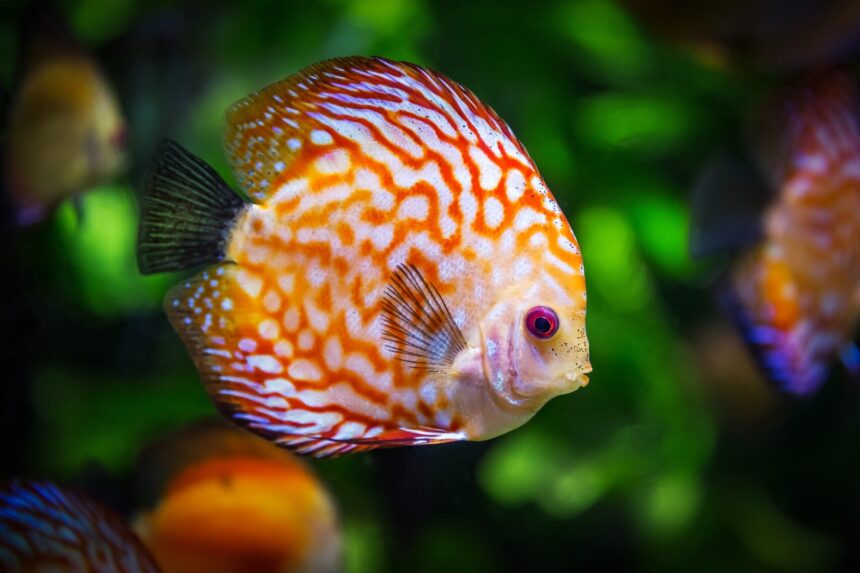Yosef was blessed by his father Yaakov that he become (“vayidgu”) plentiful [1] – like fish (dugim) who the evil eye does not rule over fish [2]. Why does the ‘evil eye’ (of jealousy) not rule over fish? It is suggested that the reason is that since they live in water, they cannot be seen directly, only through the water which acts as a type of ‘barrier’ protecting them [3].
But if so then anything that is covered should be protected by the evil eye not exclusively fish? And even fish should be susceptible to the evil eye when they are out of water? But we have been taught explicitly that the evil eye does not rule over fish!
I once discussed the topic of the evil eye with a certain Rabbi. He advised me of a certain ‘segula’ (spiritual protection) involving reciting eleven verses each beginning and ending with the letter ‘nun’, and other similar ‘segulos’ [4].
I was intrigued why there were eleven verses; why specifically the letter ‘nun’; and other similar questions which I bombarded the Rabbi with, one after the other, apparently giving off the impression that I was ‘questioning’ the segula rather than expressing interest.
“If you really want to be spared from the evil eye,” he interrupted, “then don’t look at others with an evil eye!” [5]
We have been taught that fish guard their eyes and, like G-d, do not sleep [6]. The evil eye will only affect someone who has done evil with his own eyes – but fish do only good with their eyes: they do not even sleep, which is considered to be a taste of death [7].
Furthermore, we have been taught another foolproof protection from the evil eye: if a person provides for others [8] especially for spiritual purposes [9]. Fish supply (themselves) to others as food, often as a traditional course for Shabbos meals!
And so we see that fish do not give themselves up for their own pleasure (sleep), but at the same time they are willing to completely give themselves up for the benefit of others.
This is alluded at in the very word ‘dug’, which backwards stands for ‘gomel dalim’ – providing for the needy [10].
Incidentally eating fish on Shabbos is also a ‘segula’ for being spared from punishment: ‘A person who eats ‘dug’ (meaning fish) on ‘dug’ (referring to Shabbos, which is on day seven – the numerical value of the word ‘dug’) is saved from ‘dug’ (which stands for ‘dinei gehinom’ – punishment of sins)’. The word ‘dug’ appears three times in this phrase, corresponding to the three Shabbos meals.
It should come as no coincidence then, that the numerical value of three times that of the word ‘dug’ is the same as the numerical value of the word ‘tova’ [11] meaning ‘good’ alluding to the good eye.
Furthermore ‘dug’ (fish) backwards spells ‘gud’ meaning ‘good luck’! [12]
This is why we learn from the fish: only when the fish is in water, i.e. alive, does it not sleep, and only then can it actively use its ‘good’ eye to do good and give itself up for others, ultimately so that they can also do good.
Have an eye-opening Shabbos,
Dan.
Additional sources:
[1] Bereishis 48:16 [2] Rashi, Bereishis 48:16 [3] Toras Chaim, Bava Metzia 84a [4] See Siddur, Motzei Shabbos (some prints) [5] This comment was quoted in the name of R’ Yaakov Kamentsky [6] Zohar, Idra Rabba, Naso 129b [7] Brachos 57b [8] Ibid. 130a [9] Eiruvin 64a [10] See Shabbos 104a [11] This equation requires the application of the ‘kollel’ principle, i.e. adding one [12] Rashi, Bereishis 30:11




